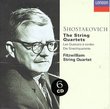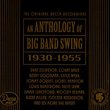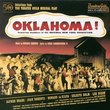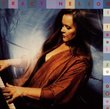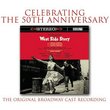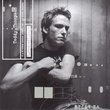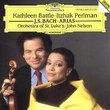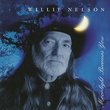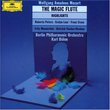| All Artists: Gabriel Faure, Maurice Durufle, Judith Blegen, James Morris Title: Faure Requiem Op.48 / Durufle Requiem Op.9 Members Wishing: 0 Total Copies: 0 Label: Telarc Release Date: 10/25/1990 Genre: Classical Styles: Opera & Classical Vocal, Historical Periods, Early Music, Modern, 20th, & 21st Century, Symphonies Number of Discs: 1 SwapaCD Credits: 1 UPC: 089408013522 |
Search - Gabriel Faure, Maurice Durufle, Judith Blegen :: Faure Requiem Op.48 / Durufle Requiem Op.9
 | Gabriel Faure, Maurice Durufle, Judith Blegen Faure Requiem Op.48 / Durufle Requiem Op.9 Genre: Classical
The chorus is at center of Shaw's reading of the score, presumably the more lightly scored 1893 version that Fauré? himself created (Telarc does not specify). The account flows very well, and the work of both soloists... more » |
CD DetailsSynopsis
Amazon.com The chorus is at center of Shaw's reading of the score, presumably the more lightly scored 1893 version that Fauré? himself created (Telarc does not specify). The account flows very well, and the work of both soloists is highly satisfying, particularly Judith Blegen's airy soprano in Pie Jesu. The recording dates from 1985-86 and is one of Telarc's best, with excellent presence overall and real bass in the organ. --Ted Libbey Similarly Requested CDs
|
CD ReviewsFrench Choral Classics Brett A. Kniess | Madison, WI | 11/30/2005 (5 out of 5 stars) "This disk has set the standard for performing the settings of the Requiem mass by two great French masters, Gabriel Faure and Maurice Durufle. The Faure setting is an intimate one with occasional moments of tempestuousness. This particular recording features the more heavily orchestrated edition (for an excellent chamber version see the Cambridge Singers under John Rutter). Put in seven parts, additional features include two baritone solos and a lovely soprano solo. The choral parts are not difficult, but require a delicate touch with great articulation, all provided here. The harmonies gently shift with occasional color changes and chromatic mediant relationships. The concluding movement (In Paradisum) sums up the experience with a satisfying contemplative moment devoid of bombasticity. A masterwork not to be missed. The Durufle Requiem is a horse of a different color. The rhythms and harmonies are not so classically straight-forward like the Faure; far from it. Not only do the rhythms constantly shift, the melodies aren't classically structured, but instead, quote and are reminiscent of chant, making the rhythmic changes seem natural. The harmonic setting is heavily steeped in church modes, but Durufle's lush orchestrations make this anything but old-fashioned. Much more thickly textured, Durufle doesn't fear to leap into occasional revelry and joyousness; Durufle has a knack for timing his climaxes just right, more moments of exuberance than Faure exhibited. This edition is the fully orchestrated version, and while there is a nice organ accompaniment edition, I much prefer the grandeur of the orchestra. Robert Shaw chooses not to have soloists, but instead have the choir parts sing the solos. This version is still highly exciting and lacks nowhere (unless you want soloists). You might want to choose to have an all Durufle choral CD (Michael Plasson in EMI classics is a good choice), but this pairing of two classics is an equally fine program. The Atlanta Symphony Orchestra and Chorus have not put out such a successful CD as in this 1987 digital Telarc classic. The sound is full and virile, the heightened sense of drama is apparent and can't be beat by any other recording, certainly not by another American choir. Nearly two decades after its release, this still remains the standard." Durufle at His Finest Brook Boddie | Shreveport, LA United States | 03/21/2001 (5 out of 5 stars) "This recording of the Faure and Durufle Requiems has single handedly served to wear out the speakers of my stereo system! The Atlanta Symphony and Chorus are at their finest on both settings, but the Durufle stands out as being exquisite. Those unfamiliar with this great work should purchase this CD in order to experience a first rate recording of this choral masterpiece. The Atlanta musicians have done a magnificent job of blending voices, instruments, and organ into a nearly-perfect masterpiece of sacred music. If you are fortunate enough to listen to this work on a high-quality stereo system that properly translates the intensity of the pedal division of the organ, you know what I mean when I say that listening to this work is a moving experience. Of particular delight in the Durufle setting are the Sanctus and In Paradiso movements. This recording should serve to become the staple by which all other recordings of these works are compared. It is a must have for any lover of sacred choral music." Easily the best large setting recording of Duruflé Requiem Scott C. Hogensen | Utah USA | 11/10/2000 (5 out of 5 stars) "I have always been a big Duruflé fan and this is the best large setting (w/orchestra and organ as opposed to just organ) of his Requiem. The entire recording is first rate, with tremendous range - including formidable but quiet pipe organ notes. Two movements in particular stand out:1. The Sanctus is beyond compare, building to a magnificent climax. This recording makes all others look hurried and unrefined. Telarc did a wonderful job on this recording - full power with absolutely no distortion. Everything is crystal clear and fully detailed.2. The concluding movement "In Paradisum" is a sublime, peaceful combination of choir and organ.Also, the Fauré Requiem is first rate, particularly Judith Belgen's Pie Jesu.I own several recordings of these pieces and this is simply the best."
|

 Track Listings (16) - Disc #1
Track Listings (16) - Disc #1